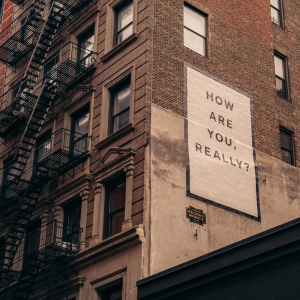75% of people seeking treatment for gambling related issues have a co-morbidity of poor mental health. The existing presence of poor mental health is also considered to be a relevant factor in understanding how gambling harm may be exacerbated by the pandemic. The direction of causality remains unascertained, but for those with an interest in the treatment of problem or pathological gambling, accelerating individuals into mental health support is likely to be hampered by an overwhelmed mental health and health sector struggling to cope with the impact of the pandemic.
Over my 20-year career in social policy, health promotion, treatment, corporate social responsibility, and research I have seen the co-existence of alcohol and drug dependency, poor mental health, and gambling harm. Whilst stigma has dramatically reduced in relation to mental health, the stigma associated with gambling, alcohol, and drug dependency remains stubbornly high, and is the most significant factor in people not seeking support or treatment. Perhaps one benefit that may emerge from this global pandemic is a greater personal sense of legitimacy for individuals to acknowledge they are struggling and for others to have an openness to see these struggles as something other than a personal failing.
The past ten years have seen a growing recognition of the personal and social cost of harm from gambling. It is estimated that for every person experiencing harm from gambling, six other people connected to the individual are also impacted. This includes family members, friends, employers and employees. Time and money lost to gambling at levels causing harm, persists long after the individual reduces or ceases gambling. Harms can include detriments to health, neglect of personal and professional responsibilities, a burden on government resources, and criminal activity undertaken to enable continued gambling.
There is now an acknowledgement that external factors such as economic recession contribute to gambling harm, so questions were always going to be raised about what influence the global COVID-19 pandemic might have. Job losses, isolation, grief, and a sense of hopelessness might all lead to a perception that the scene is set for a rapid rise in excessive gambling.
The reality is that those most susceptible to developing difficulties with gambling as a result of the current health and economic crises are likely to have been already struggling prior to the pandemic. The pandemic has simply amplified their experience of the harm, limited their capacity to cope with its effect, and reduced the ability to seek and access support.
Academics with a specialism in gambling harm are closely monitoring patterns of gambling, presentations to treatment services, and the economic landscape. Three in four people reported gambling less during lockdown in Australia, with the quarter that are gambling more being largely those who were already experiencing harm prior to the pandemic.
The limited sporting and racing fixtures and closure of retail or land-based gambling options may have reduced the opportunity for widespread elevation of problematic gambling participation. On recommencement of sporting events and the opening of gambling venues, a different pattern of gambling harm may emerge if the prevailing economic outlook remains at its current or a deteriorating level.
The true impact of recession, social isolation, reduced sense of personal control, and low levels of optimism are likely to appear in gambling harm statistics 12-18 months from now. As a highly regulated sector, the gambling industry has heightened its focus on systemic change to its practices and approaches to reduce and better manage gambling harm in-line with community expectation. This sense of greater vigilance was set pre-pandemic but has perhaps come into sharper focus since. Like many corporate entities, sustainability runs as a thread within gambling operators across the world as they balance their growth agenda with the need to protect those with the propensity to experience harm.
With the cracks in society that see the most vulnerable members of our community left behind during times of optimism and prosperity, the pandemic has shone a light on the gaps in our response to psycho-social issues. As governments, the corporate sector, and not-for-profits grapple with the enormity of the task of responding to the pandemic, perhaps more now than ever greater collaboration can be mobilised to collectively address these important issues.
You can now watch the MindMatters digital event, discussing how to prioritise the mental wellbeing of you and your teams, in partnership with Z Zurich Foundation, here.




















